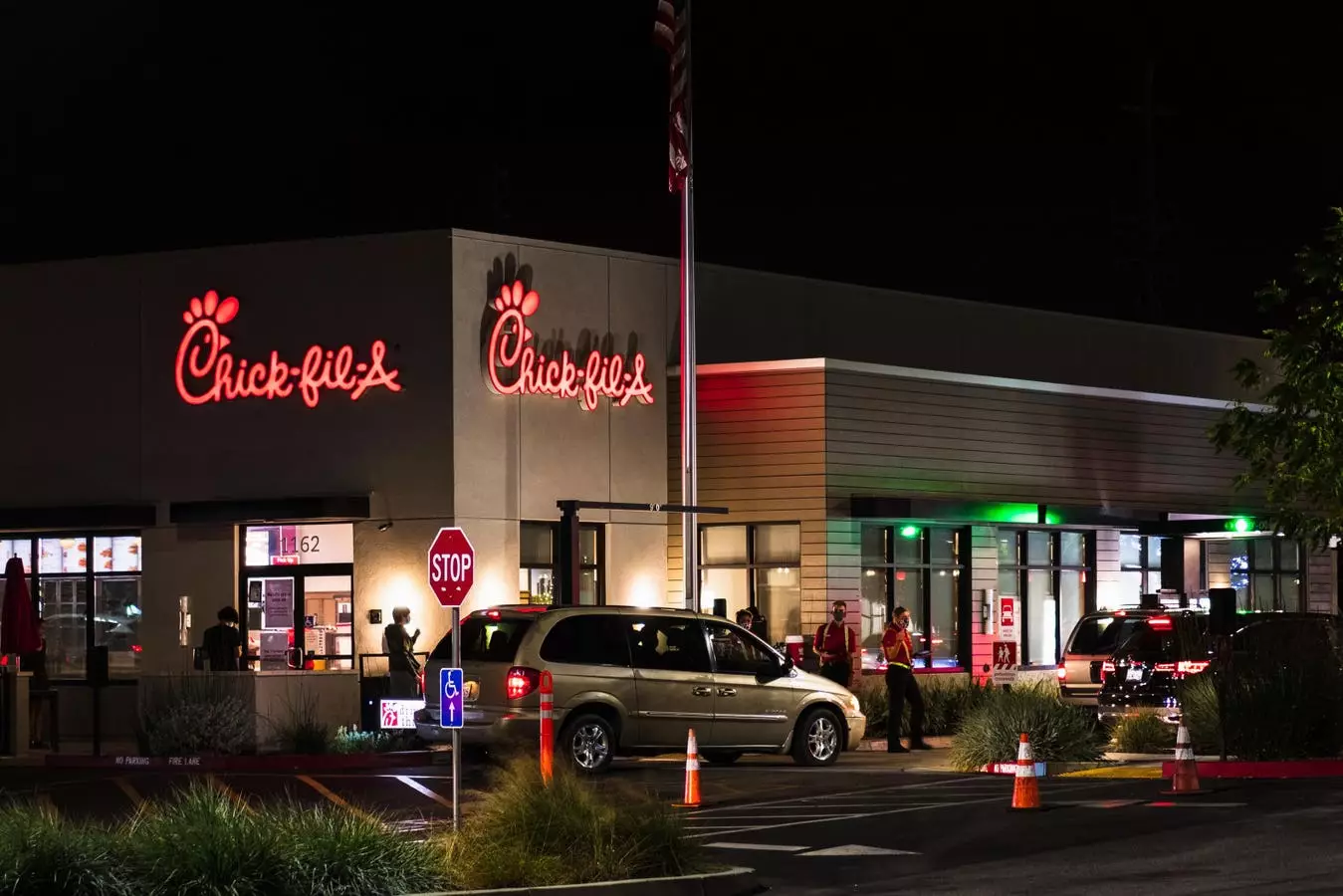In a surprising turn of events, Chick-fil-A, the fast-food giant known for its delicious chicken sandwiches and exceptional customer service, has been dethroned from its long-held position as America’s favorite fast-food restaurant. The Mexican-American chain, Del Taco, has claimed the number one spot in USA Today’s Readers’ Choice Awards, leaving Chick-fil-A in second place. Additionally, Kentucky Fried Chicken (KFC) has overtaken Chick-fil-A to become the second most popular fast-food destination. This unexpected shift in the fast-food landscape raises questions about what factors led to Chick-fil-A’s decline in popularity.
Changing Customer Preferences
A survey conducted by LendingTree revealed that nearly 80% of adults consider fast food to be a luxury due to high prices, prompting 62% of respondents to indulge in fast food less frequently. Chick-fil-A was singled out as the most high-end fast-food chain, alongside Starbucks and Chipotle. This perception of Chick-fil-A as a premium fast-food option may have played a role in its recent drop in rankings. In response to changing consumer preferences, Chick-fil-A has introduced new retail formats to enhance the fast-food experience and attract customers.
Despite facing stiff competition, Chick-fil-A remains committed to innovation and growth. The company’s financial success is evident, with annual sales reaching $21.6 billion in 2023. This upward trajectory is fueled by the expansion of Chick-fil-A’s franchise units, which average an impressive $9.4 million in annual sales. Looking towards the future, Chick-fil-A plans to open 183 new restaurants this year and invest $1 billion in international expansion to enter European and Asian markets by 2030.
Embracing Change
To stay ahead of the curve, Chick-fil-A has introduced new digitally-powered retail formats, such as a walk-up store with no in-store dining and an expanded drive-thru concept. These innovative store models cater to urban areas where speed and convenience are paramount. The drive-thru only location in an Atlanta suburb features a four-lane system that can serve 75 cars at once, showcasing Chick-fil-A’s commitment to efficiency and customer satisfaction.
Expanding Cultural Influence
Beyond its success as a fast-food chain, Chick-fil-A has cultivated a strong cultural presence. Company founder S. Truett Cathy’s decision to close his Georgia restaurant on Sundays reflects Chick-fil-A’s commitment to its values and purpose. With a mission to “glorify God” and “have a positive influence on all who come in contact with Chick-fil-A,” the company sets itself apart from secular mainstream brands. Chick-fil-A’s foray into entertainment with family-friendly content further extends its cultural reach and aims to meet the growing demand for wholesome and uplifting programming.
As Chick-fil-A navigates a changing fast-food landscape and seeks to expand its international footprint, the company faces challenges and opportunities ahead. By embracing innovation, investing in growth, and staying true to its core values, Chick-fil-A has the potential to reclaim its position as a leader in the fast-food industry. Whether the company can successfully leverage its brand strength and customer loyalty to achieve its ambitious goals remains to be seen. However, Chick-fil-A’s unwavering commitment to excellence and integrity positions it well for future success in an ever-evolving market.

